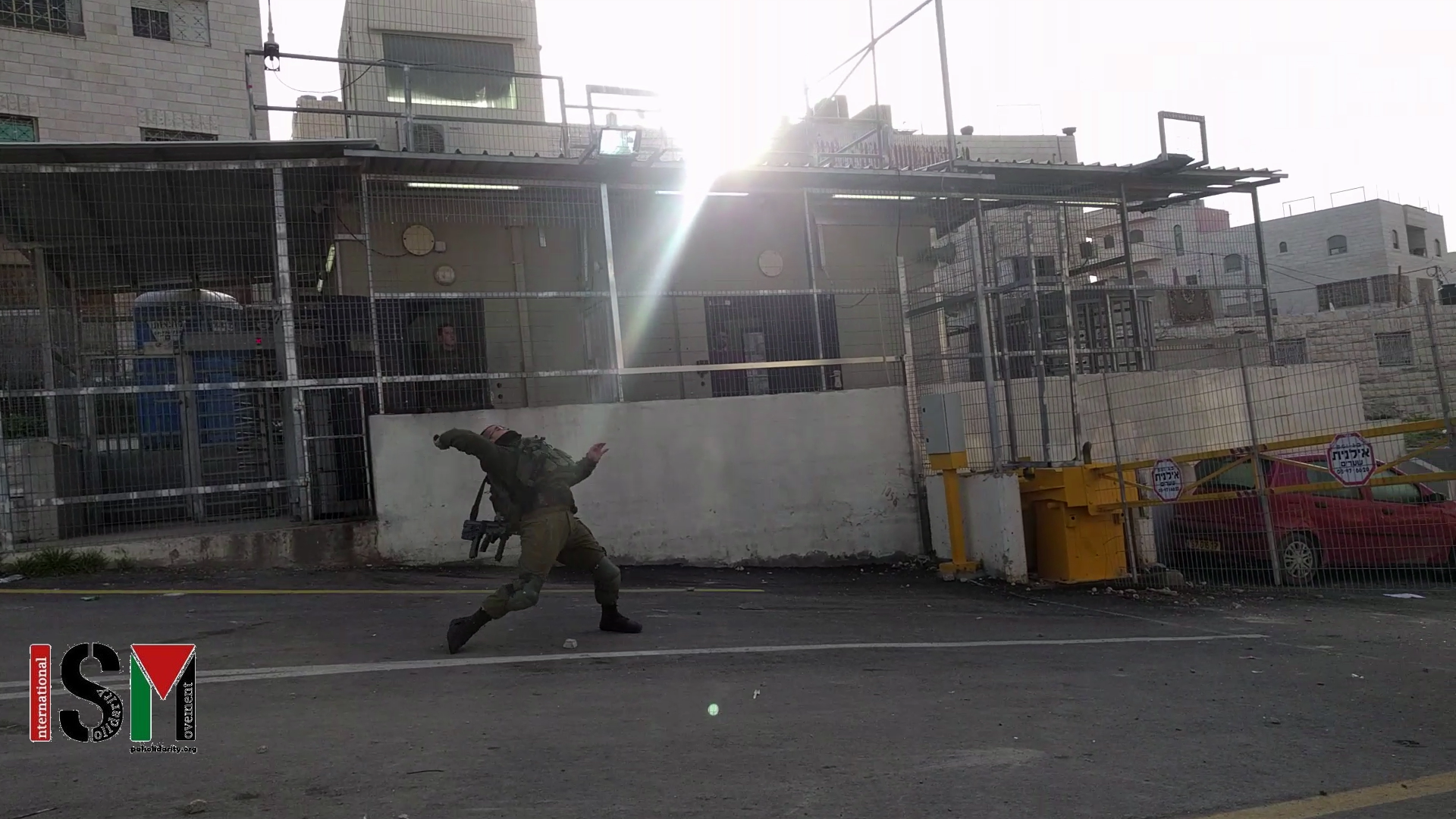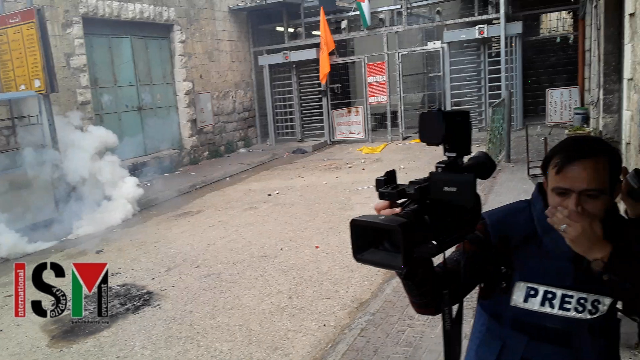Category: Reports
-
Soldier uses stun grenade on school children at Salaymeh
February 24, 2019 | International Solidarity Movement, Al-Khalil team | Al-Khalil, occupied Palestine ISM were monitoring the checkpoint at Salaymeh this morning when they witnessed a soldier throwing a concussion grenade at children on the H1 side of the checkpoint. This morning the ISM team in Al-Khalil were monitoring the checkpoint at Salaymeh. Infamous illegal…
-
Hebron: non-violent protestors, press attacked by occupation forces
February 22, 2019 | International Solidarity Movement, Al-Khalil team | Al-Khalil, occupied Palestine This afternoon Israeli occupation forces attacked a non-violent demonstration organised by Palestinian civil society and attended by locals, internationals and Israelis. Protestors demanding an end to the illegal occupation of Al-Khalil were attacked by Israeli soldiers and border police who fired tear…



